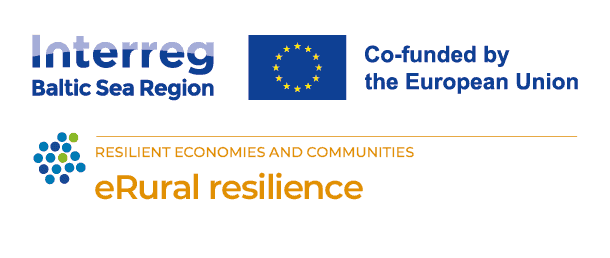
E-bio entrepreneur - new concept of future business
02 July 2024
Bioeconomy is already well-known term in the context of EU policy and majority of EU countries have national strategies how to foster the bioeconomy in their countries. One important common challenge is how to merge bioeconomy development with the digital transition to make Europe more competitive in the global market following the Green Deal goals.
To reduce the depopulation of rural areas and increase the economic activity, local authorities and business promotion bodies in Baltic Sea region, are promoting local businesses that can convert renewable biological resources into higher valued products. But as the local market is limited and not big enough in clients, so the new bio-businesses promotion has to be linked to digitalization, with the focus of covering urban or international markets.
eRural resilience project consortium of 14 partners has created the partnership with the aim to enable local authorities and business support organisations in rural areas to help SMEs increase their digital and bioeconomy capability introducing the innovative concept of ’E-bio business’.
Bio-Knowledge Hub under the project has developed the definition of E-bio business that means conducting business activities in bio- technology or biological production over digital platforms.
The concept can be divided into two key aspects:
- Bioeconomy which involves using renewable feedstocks such as plants, animals, and microorganisms, to produce goods and services in a sustainable way.
- Digitalization which refers to the adoption of digital technologies and processes across various aspects of the business operations.
The two concepts can be combined in different sectors of the e-bio-businesses such as supply chain, marketing, retail and circular economy, and workforce skills.
As explained by Leni Forsberg, representative of Centria leading the Bio-Knowledge Hub”: “In the context of the project, the term ‘E-bio business’ refers to businesses operating in rural areas that leverage renewable biological resources while integrating digitalization or digital tools. The term bridges the gap between renewable biological resources and digitalization, creating a more sustainable and efficient business model.”
During the project, the detailed methodologies will be developed and tested for e-biobusiness launching and assessment of e-biobusiness supporters.






